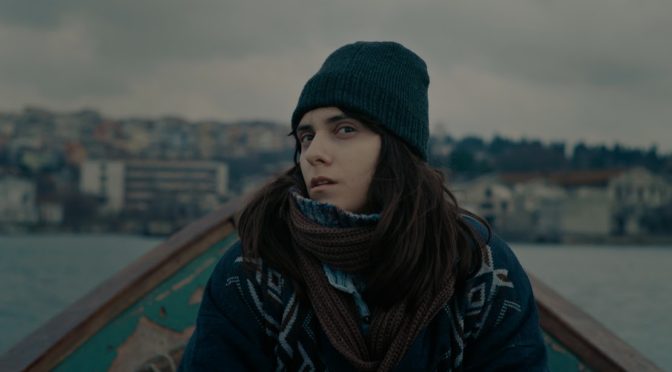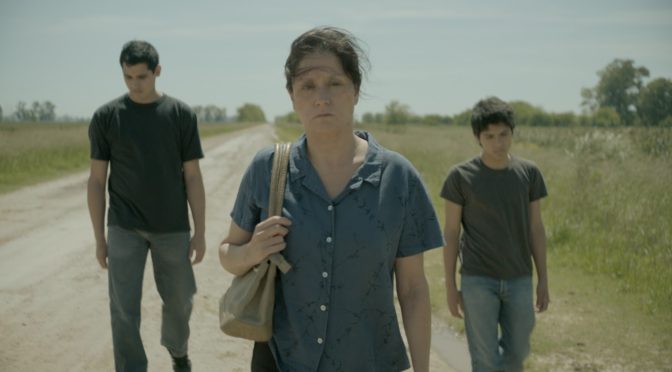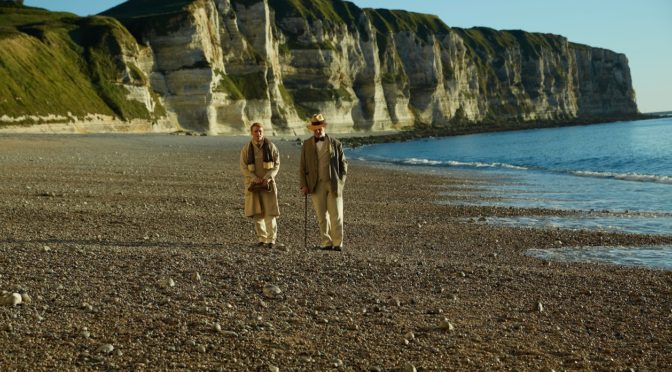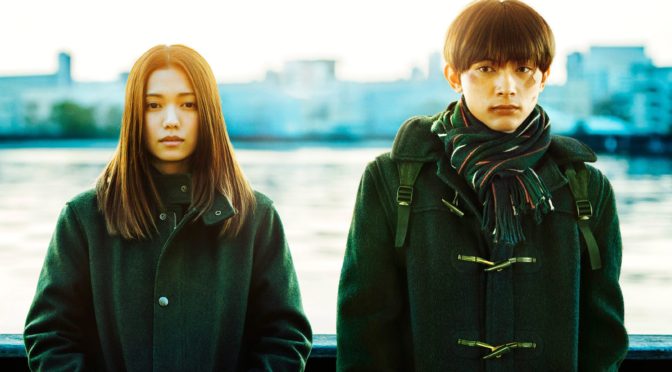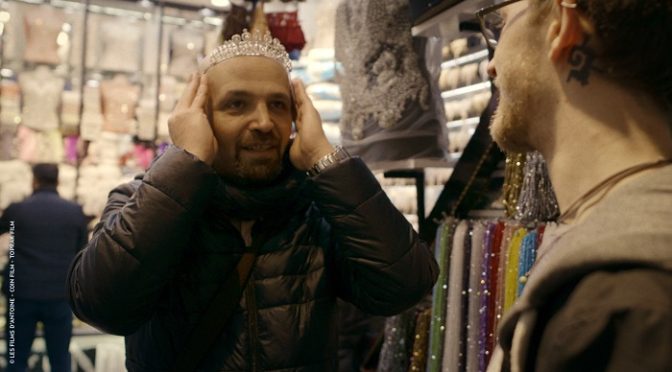It’s a day for the daring, with the premiers of a number of high-profile experimental filmmakers. Jerry Tartaglia looks back at the work of Jack Smith in ‘Escape From Rented Island’, Irene Lusztig overlaps the voices of female letter writers in the 70s with those of present-day women in ‘Yours in Sisterhood’, and Barbara Hammer uses moving translucent images of the body imposed on film reels to explore the body’s cycles of life and death in ‘Evidentiary Bodies’. Each director here examines the need for archiving, questioning the ways we document, and keep visible, communities that have previously been shunned to the shadows of history.
The TEDDY AWARD is itself involved in the preservation of queer cultural memory through its partnership with the Queer Academy. Delve into the history of LGBT cinema by checking out the website here: https://queeracademy.net
Happy Wednesday Watching!
Escape From Rented Island: The Lost Paradise of Jack Smith
Director: Jerry Tartaglia
Akademie der Künste, 21:30
In his essay film, Jerry Tartaglia, longtime archivist and restorer of the film estate of queer New York underground, experimental film, and performance legend Jack Smith, deals less with Smith’s life than with his work, analyzing Smith’s aesthetic idiosyncrasies in 21 thematic chapters. “Escape From Rented Island: The Lost Paradise of Jack Smith is a film essay about the artist’s work, rather than a documentary about his life. Therefore, it does not present a rational, linear, and detached explanation of his work. Instead, it asks the viewer to sympathetically experience the aesthetic choices behind the work of Jack Smith. This strategy that I have chosen creates a challenge for the viewer, particularly those who are reliant upon external commentary or non-diegetic material in the documentary film form; I have no apology to offer those who cannot bear the unmediated vision of Jack Smith; only an invitation to join him in his lost paradise.”
Evidentiary Bodies
Director: Barbara Hammer
USA 2018, 10′, Without dialogue
Kino Arsenal 1, 15:00
A life lived within the sprocket holes of film can still dance. The beauty of the human body, although maimed, dances forward. Hope does not live eternal but daily. An audience immersed in three screens to feel the encasement of illness, the isolation of the material body. The forever ongoing chain of film runs but cannot hold up the protagonist. Time is flexible as the body transforms and the film loops. A trilogy of the self, witness of decline and suffering, performing the unthinkable, inevitable, dance of death. Three surrounds, enfolds, embraces the one who cannot stand alone. We, as human beings on a small globe, united by evolutionary structure and biological DNA have a chance to come together through the experience of empathy and identification with the sensitive body. An unspoken plea for viewers to engage with compassion, to experience vulnerability, to know through evidence this body is their body.
Tuzdan kaide (The Pillar of Salt)
Director: Burak Çevik
Turkey 2018 70′, Turkish
CineStar 8, 16:30
A pregnant young woman who lives in a sort of cave is looking for her vanished sister, yet this plot summary hardly does justice to
the charm, richness and radical nature of Burak Çevik’s first feature – all of which a result of the liberties he takes in creating an extravagant cinematic world to tell this story. The protagonist leaves her almost fairytale-like cave to set out across a river, taking up her sister’s trail. This trail leads her to a botanical garden, a bird shop, and a darkroom. The photo lab technician compares the effect of photographs to God turning Lot’s wife into a pillar of salt because she couldn’t resist the temptation of turning around to see Sodom be destroyed. Captured for eternity, transfixed for eternity – should we take it at face value when the protagonist tells the boatwoman that she is a part-time vampire? The dreamlike way in which the film digresses to show us a plant, a strip of negatives, or a table tennis match contributes considerably to the strange fascination it develops. Some things remain mysterious – which only makes us even more curious about what they might be referring to.
Yours in Sisterhood
Director: Irene Lusztig
USA 2018 101′, English
Delphi Filmpalast, 18:45
A petrol station at an Atlanta intersection. A private estate in Bowling Green, Kentucky, complete with a perfect lawn. The front yard of a family home in Connecticut. At first glance, the places Irene Lusztig chose to visit on her two-year journey through the United States seem unremarkable. At each stop, Lusztig had local women read out and comment on letters from the archive of liberal feminist magazine “Ms.”. These letters were originally sent around 40 years ago in response to articles in the magazine, serving also as outlets for their writers, mainly women, to share their personal stories – with intimacy and candour, at times full of relief, at other rage. The letters recount experiences of abortions or lesbian affairs with married women and rail against the magazine’s ignorance of what real life meant for black women. Irene Lusztig’s documentary set-up succeeds in bringing a wealth of experiences from an earlier generation of the feminist movement into a complex dialogue with the present. The written word only appears to be at the fore, beyond it, there lies a whole universe of feminism for the viewer to discover, which Yours in Sisterhood makes accessible on many levels.
